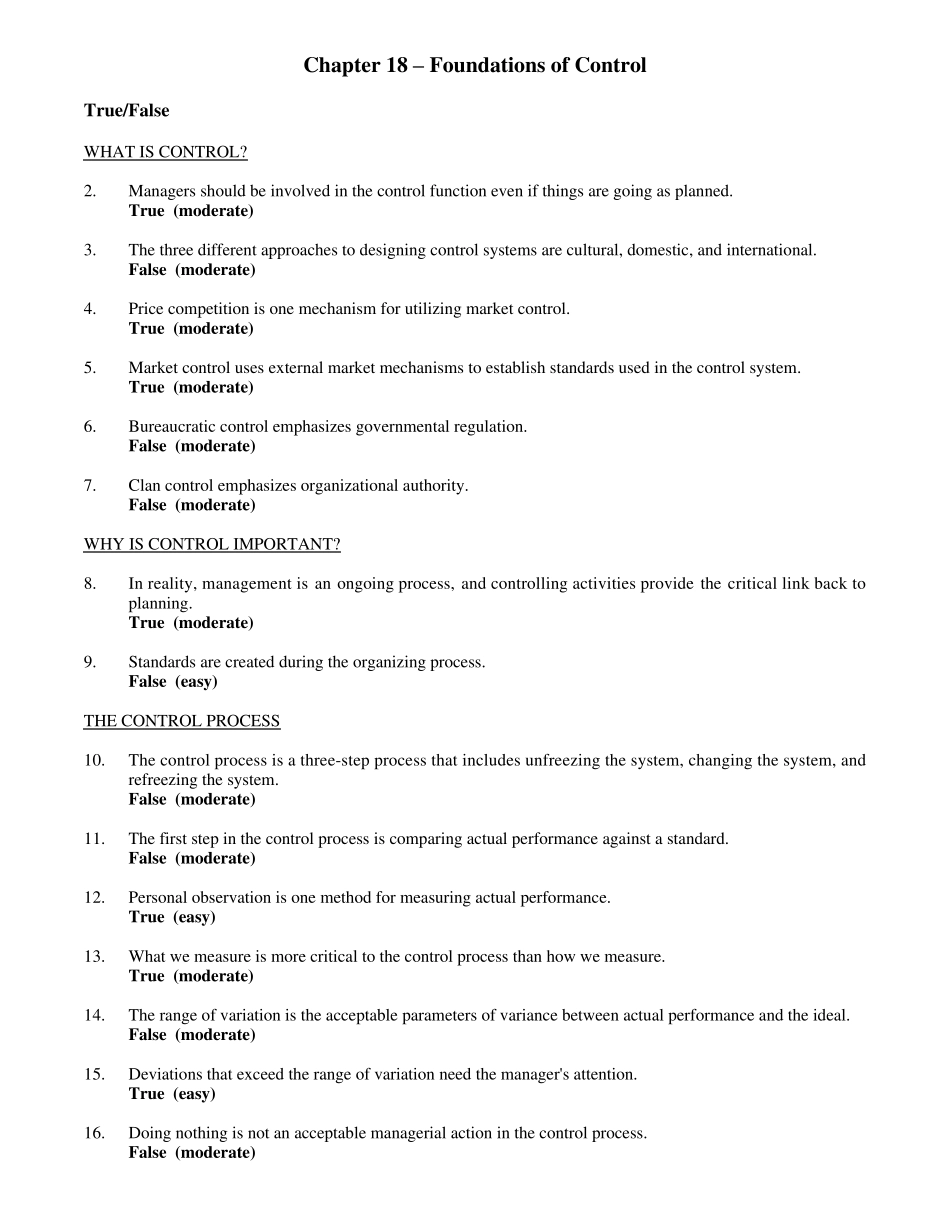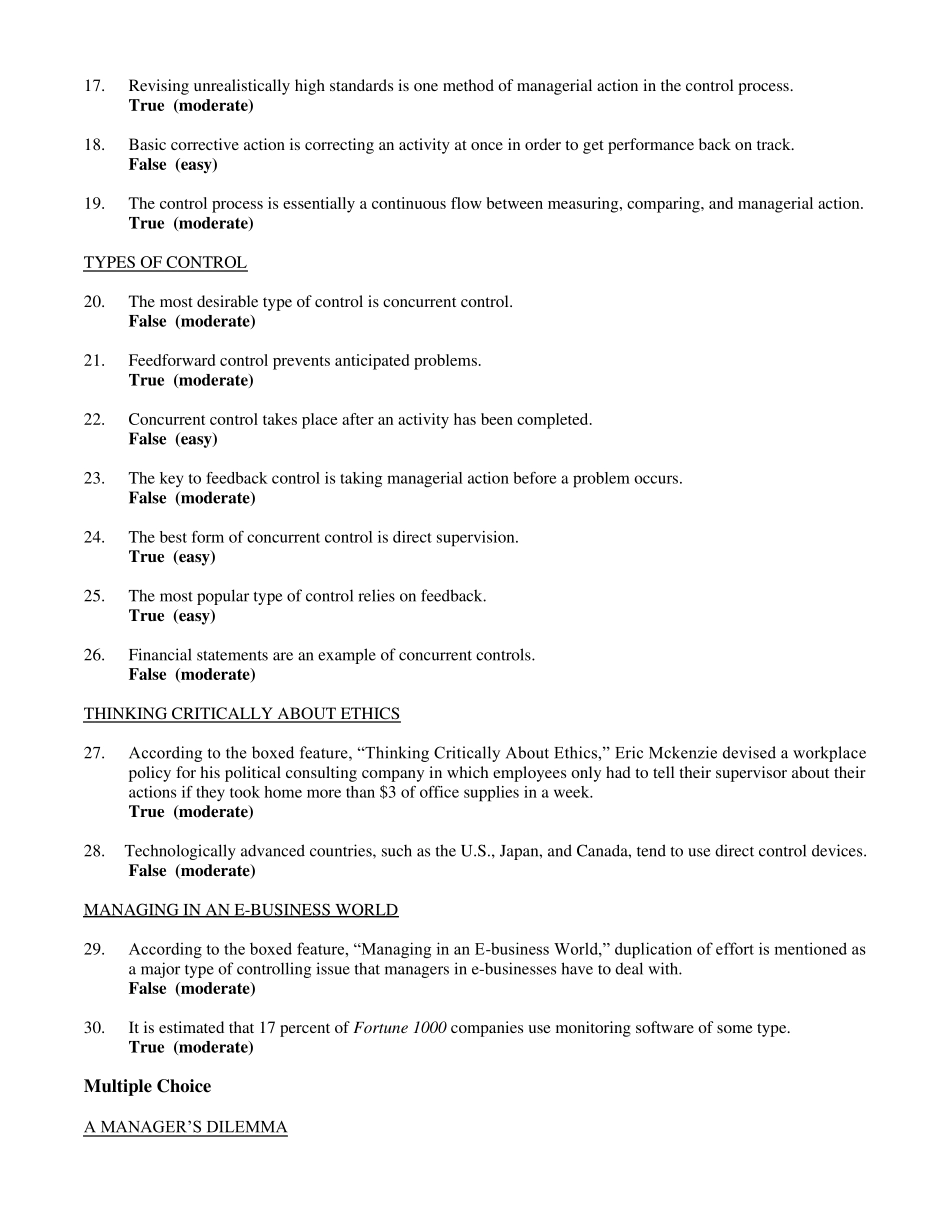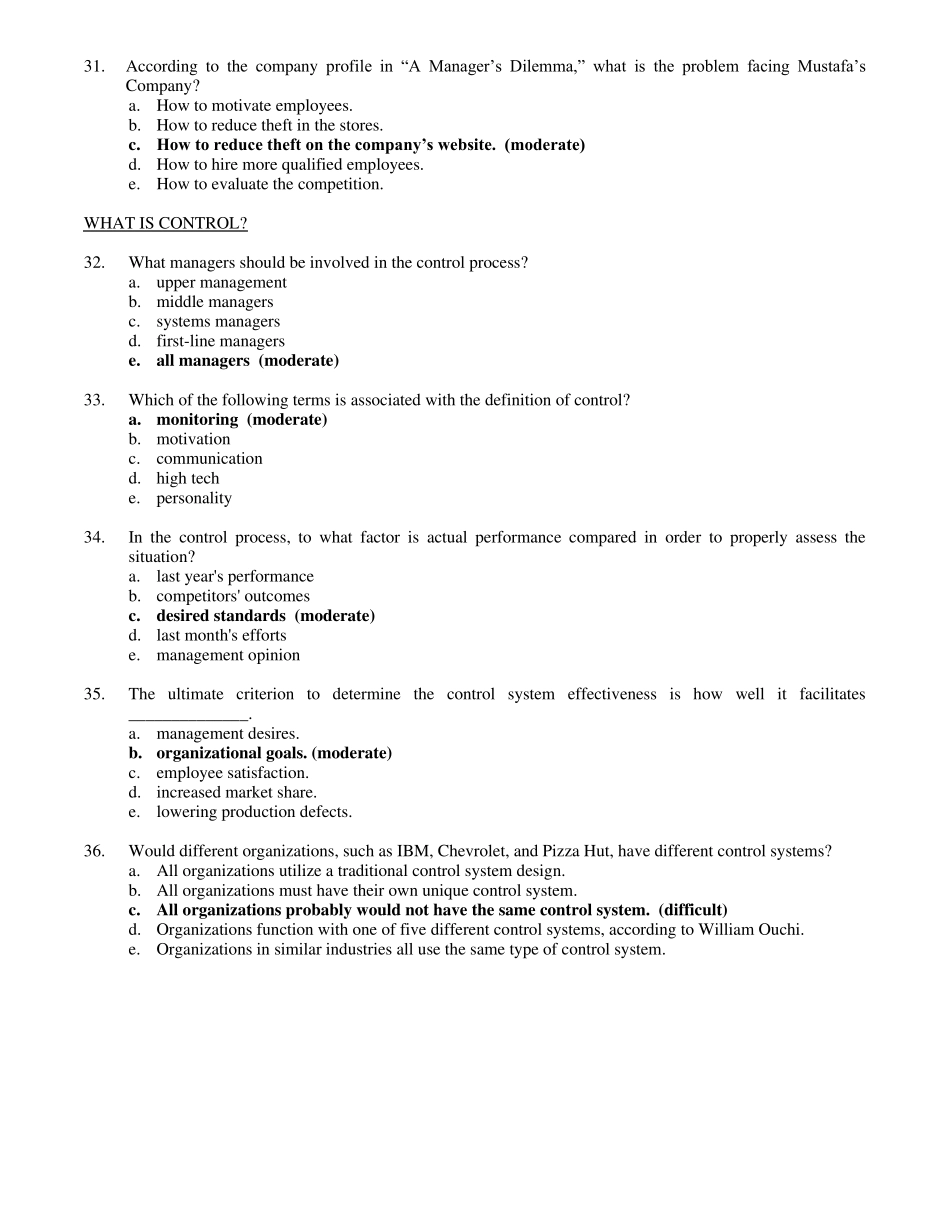Chapter 18 – Foundations of Control True/False WHAT IS CONTROL? 2. Managers should be involved in the control function even if things are going as planned. True (moderate) 3. The three different approaches to designing control systems are cultural, domestic, and international. False (moderate) 4. Price competition is one mechanism for utilizing market control. True (moderate) 5. Market control uses external market mechanisms to establish standards used in the control system. True (moderate) 6. Bureaucratic control emphasizes governmental regulation. False (moderate) 7. Clan control emphasizes organizational authority. False (moderate) WHY IS CONTROL IMPORTANT? 8. In reality, management is an ongoing process, and controlling activities provide the critical link back to planning. True (moderate) 9. Standards are created during the organizing process. False (easy) THE CONTROL PROCESS 10. The control process is a three-step process that includes unfreezing the system, changing the system, and refreezing the system. False (moderate) 11. The first step in the control process is comparing actual performance against a standard. False (moderate) 12. Personal observation is one method for measuring actual performance. True (easy) 13. What we measure is more critical to the control process than how we measure. True (moderate) 14. The range of variation is the acceptable parameters of variance between actual performance and the ideal. False (moderate) 15. Deviations that exceed the range of variation need the manager's attention. True (easy) 16. Doing nothing is not an acceptable managerial action in the control process. False (moderate) 17. Revising unrealistically high standards is one method of managerial action in the c...


